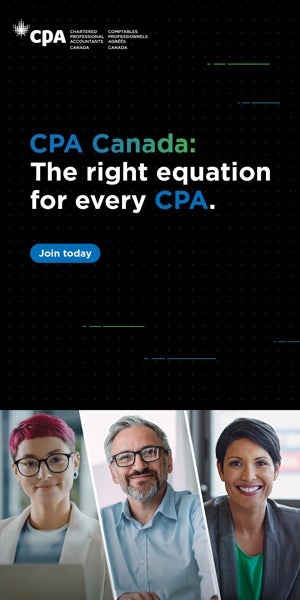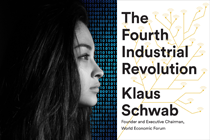New roles for auditors, assurance in Blockchain ecosystem says CPA profession joint white paper

CPA Blockchain white paper refutes claims of redundancies in accounting
TORONTO, April 25, 2018 – Far from posing a threat to the future of the accounting and audit profession, Blockchain technology will provide opportunities to the CPA profession and may even widen the role of CPAs in audit and assurance.
That’s the view of a new white paper, “Blockchain Technology and Its Potential Impact on the Audit and Assurance Profession,” published by the Chartered Professional Accountants of Canada (CPA Canada), the American Institute of CPAs (AICPA), and the University of Waterloo Centre for Information Integrity and Information Systems Assurance (UWCISA).
“Some publications have hinted that blockchain technology might eliminate the need for a financial statement audit by a CPA auditor altogether,” state the authors, largely comprising current and past executives from the innovation and audit teams at Deloitte. “If all transactions are captured in an immutable blockchain, then what is left for a CPA auditor to audit?”
While Blockchain technology offers an opportunity to streamline financial reporting and audit processes, presumably realizing efficiencies through the elimination of manual data extraction and audit preparation activities, blockchain transactions may not provide “sufficient appropriate audit evidence related to the nature of the transaction.”
Despite claims made as to the potential of decentralized verification, the white paper argues that recorded transactions may still be unauthorized, fraudulent or illegal; executed between related parties linked to a side agreement that is “off-chain”; or incorrectly classified in the financial statements, among other things. It concludes that blockchains are unlikely to replace judgments by a financial statement auditor.
Opportunities for CPAs in a Blockchain world
"Change comes quickly," says Gord Beal, vice president of research, guidance and support at CPA Canada. "Anticipation, early understanding and integration of innovative technologies is critical to the success of our members and the organizations they serve. Blockchain is already starting to affect CPAs and its impact on the profession is anticipated to grow. We are committed to providing guidance to help CPAs navigate these changes and create opportunities for the future."
Most intriguing are the four potential roles identified in the white paper for a CPA in providing assurance within the Blockchain ecosystem:
Auditor of Smart Contracts and Oracles
A CPA auditor could verify the interface between smart contracts and external data sources that trigger business events. Without an independent evaluation, users of blockchain technologies face the risk of unidentified errors or vulnerabilities. However, the paper notes that, to take on this new role, a CPA auditor may need a new skill set, including understanding technical programming language and the functions of a blockchain.
Service Auditor of Consortium Blockchains
A CPA could provide independent assurance as to the stability and robustness of the architecture of a new or existing application on an existing blockchain platform or product.
Administrator Function
A CPA could be responsible for verification of identity or a further vetting process to be completed by a participant before they are granted access to a blockchain. This central administrator could validate the enforcement and monitoring of the blockchain’s protocols. The paper asserts that there is risk involved if this function is performed by a user/node of the blockchain.
Arbitration Function
A CPA could perform in a function “analogous to the executor of an estate, a role typically filled by various qualified professionals, including CPA auditors. Participants on the blockchain may require this type of function to enforce contract terms where the spirit of the smart contract departs from a legal document, contractual agreement or letter.”
Call to Action
While the white paper correctly advocates for the monitoring of blockchain developments by all CPAs and standard setters in the profession, it calls for the consideration of Blockchain-related education and professional development for new CPAs and experiences CPAs respectively.
As the paper makes clear, CPAs will need to evolve their skill sets and knowledge to meet the anticipated demands of the business world as blockchain and other new technologies are more widely adopted," says Susan Coffey, executive vice-president for public practice at the AICPA.
Colin Ellis is managing editor of Canadian Accountant. Click here to download “Blockchain Technology and Its Potential Impact on the Audit and Assurance Profession.”











(0) Comments